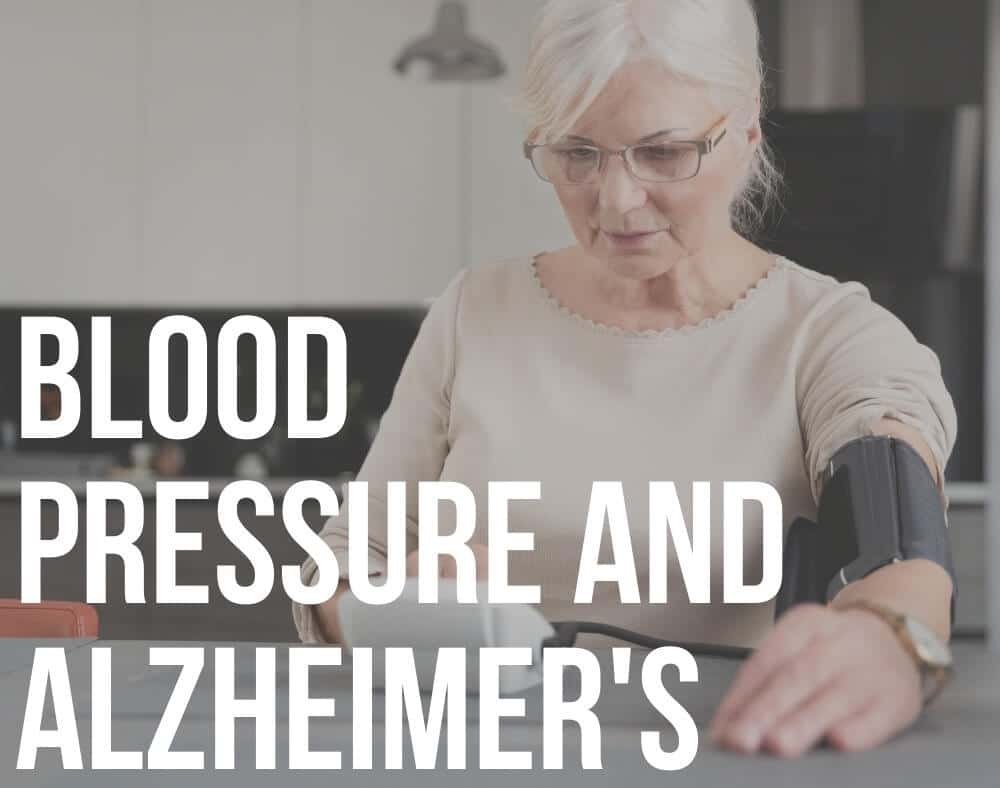New research suggests there may be a link between hypertension or high blood pressure and Alzheimer’s disease (AD).
High blood pressure occurs when the force of blood pushing against blood vessels becomes too high.
This can cause harm because it stresses not only the blood vessels but the heart as well.
The blood vessels cease to function properly because they have to work harder than normal.
Over time, the arteries will become narrower which can result in problems such as stroke, kidney failure, or heart disease.
Damaged small blood vessels can also negatively affect the sections of the brain responsible for memory and thinking.
Blood Pressure and Alzheimer’s Risk
Persons with higher blood pressure are also more likely to have brain lesions. These are the areas of dead tissues that develop because of low blood supply.
AHA statistics report that about 46% of America’s adult population has blood pressure. Not to mention, 16% do not even know they have the condition.
Alzheimer’s disease is the most common cause of dementia.
Dementia is a general term for the progressive loss of memory and other cognitive abilities that can seriously interfere with a person’s day-to-day life.
High blood pressure can affect the brain

Scientists believe that hypertension can also affect a person’s brain to the extent of developing some of the main markers for AD.
A study published in Neurology states that seniors who have higher average blood pressure compared to their age-mates are more likely to develop plaques and tangles in the brain which are both markers for Alzheimer’s.
The study had 1,288 participants who were 65 years and older. The researchers conducted annual cognitive testing and blood pressure checks on the subjects.
Moreover, experts also kept track of the medications the participants took and their medical histories. They also agreed to go through a brain autopsy after death to look for signs of brain aging like plaques and tangles.
Researchers discovered that persons who had higher than average blood pressure had more dead tissues resulting from strokes (blocked blood flow) as well as tangles and plaques.
Dr. Claudia Padilla, a neurologist, explained that plaques and tangles happen when proteins that the body produces break down into toxic forms which significantly affect neurons in the brain.
Director of global science initiatives at Alzheimer’s Association, James Hendrix, Ph.D. notes that damage that the toxic proteins cause is only part of the problem.
He said that lack of sufficient blood flow affects how the brain works around damaged tissue which can worsen symptoms of brain tissue damage.
Hypertension may not be the warning sign of AD

Padilla also stated that because this was an observational study on the relationship between blood pressure and Alzheimer’s disease, the results do not prove that hypertension causes warning signs of AD.
The study did not determine how higher average late-life blood pressure ends up increasing plaques and tangles in the brain.
However, she added that the study found a clear association between higher blood pressure in late life and the presence of protein plaques and tangles which are symptoms of Alzheimer’s disease.
Based on the findings of the study, Padilla considers it important to control blood pressure as a strategy for preventing cognitive decline.
In another interesting study on the relationship between blood pressure and Alzheimer’s, a Johns Hopkins analysis of formerly gathered data revealed that individuals who took prescribed blood pressure medication were half as likely to develop AD than those who did not.
The report established earlier work from researchers at Johns Hopkins who found that using potassium-sparing diuretics reduced the risk of Alzheimer’s by about 75%.
The risk was reduced by a third for persons who used any kind of antihypertensive drugs. Director of Johns Hopkins Memory and Alzheimer’s Treatment Constantine Lyketsos, M.D said that they found that if a person did not have Alzheimer’s and they were taking blood pressure medication, they were less likely to develop dementia.
He continues to say that if a person developed dementia from AD and was taking certain antihypertensive, the illness was less likely to progress.
They were not sure if this connection arises from better management of blood pressure or there are specific drugs that end up interfering with processes that relate to AD. Lyketsos suspected that both play a role.
Controlling your levels of blood pressure is important

An in-depth examination of long-term data from 4 countries by a team of global scientists also supported the idea that controlling high blood pressure can reduce the risk of Alzheimer’s.
The experts cross-referenced data from 6 large longitudinal studies. They observed the heath of more than 31,000 adults who were 55 years and above.
The scientists analyzed data from community-based comprehensive health studies conducted between 1987 and 2008 in France, United States, Netherlands, and Iceland.
They looked into 5 primary types of blood pressure drugs diuretics, ACE inhibitors, calcium channel blockers, beta-blockers, and angiotensin II receptor blockers.
The data was divided into 2 groups; 15, 553 people with normal blood pressure, and 15,537 people with high blood pressure.
In all, there were 1,741 Alzheimer’s disease diagnoses over time.
The results showed that treating hypertension reduced the risk of developing Alzheimer’s by 16% regardless of the type of antihypertensive medication a person was on.
In other words, it is important to take the link between lowering blood pressure and Alzheimer’s risk seriously.
High blood pressure medication can boost blood flow to the brain

A small clinical trial also revealed that using blood pressure medication for treatment can enhance blood flow to key brain regions in persons with Alzheimer’s disease.
The research was part of a larger trial that was looking into whether nilvadipine could improve thinking and memory skills with persons with Alzheimer’s.
It involved a trial of 44 participants who had mild to moderate AD. The average age of the participants was 77 years.
They were randomly assigned to either use blood pressure medication nilvadipine or inactive placebo pills for 6 months. At the end of the trial, specialized MRI scans showed the persons on the drugs recorded a 20% increase in blood flow to the hippocampus.
This is the structure of the brain that is involved in learning and memory.
These are the first areas that Alzheimer’s damages.
Persons on the real drug also indicated that their blood pressure dropped by eleven points when compared to the group that was on the placebo.
Experts, however, acknowledged that the size of the study was too small and short.
Unfortunately, it is impossible to conclusively indicate whether enhanced blood flow could have effects on the symptoms.
The lead author Dr. Jurgen Claassen hoped that future research could give a better answer to the query and it should mostly focus on persons with early Alzheimer’s.
He, however, explained that persons with early-stage AD showed benefits.
Closing Remarks
Even though several studies have linked high blood pressure to Alzheimer’s symptoms more research is still required.
The findings of the studies affirm that what’s good for the heart is also good for the brain.
We can reduce hypertension through various lifestyle changes like physical exercise, eating a healthy diet, and reducing sodium. Some medications can also help lower blood pressure.







